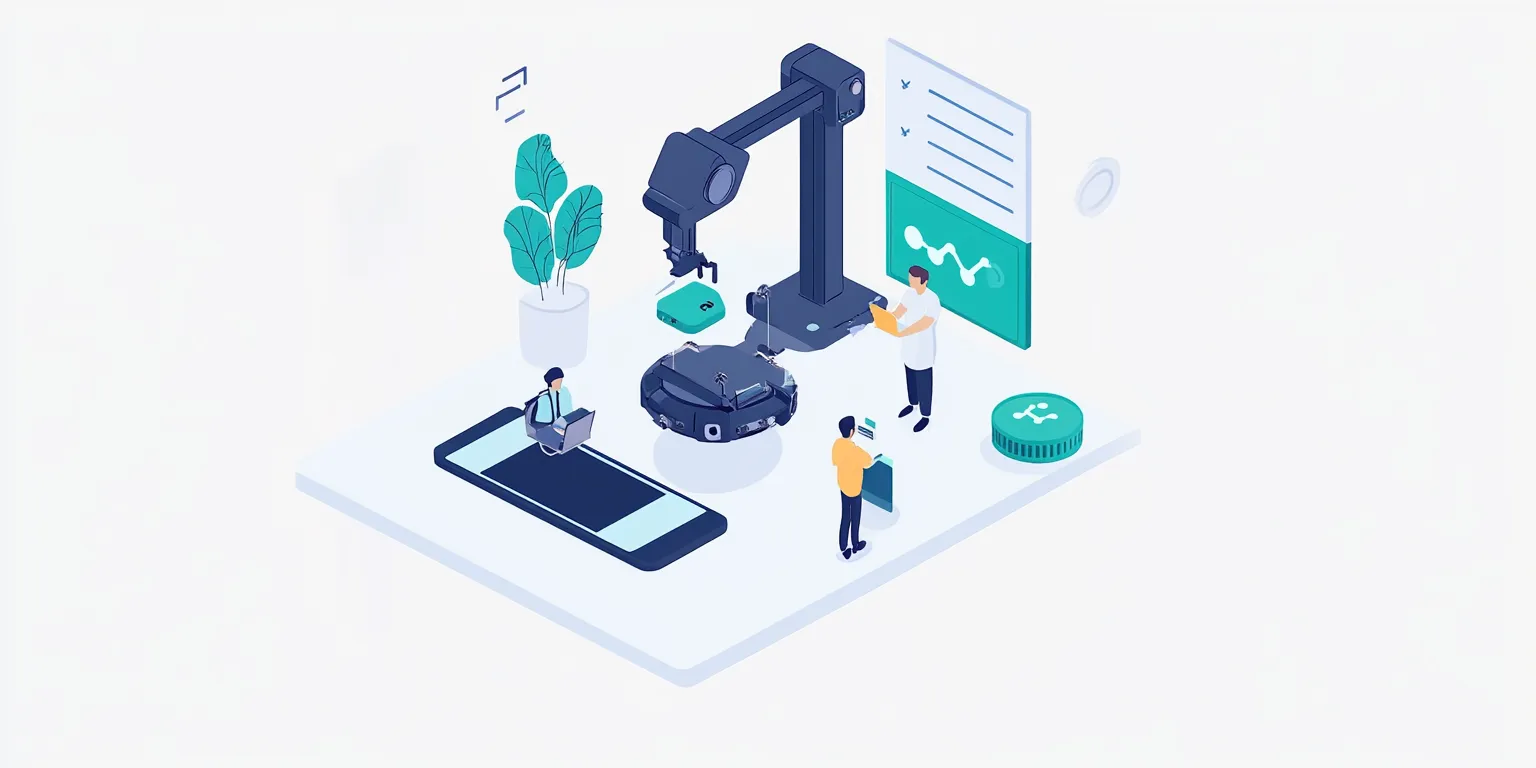Hiring AI talent has never been more urgent—or more difficult. A 2024 report by AIPRM revealed that 68% of business leaders struggle to attract qualified professionals to manage and scale their AI initiatives, a challenge that is particularly acute for AI companies. The talent gap persists despite increasing investments in AI across industries—from finance and healthcare to retail and tech.
As demand surges, so does the challenge of separating true AI practitioners from those with only surface-level understanding. Traditional hiring signals—degrees, job titles, and years of experience—often fail to capture what really matters: a candidate’s ability to build, deploy, and scale real-world AI systems. AI-related degrees at the bachelor's, master's, and doctoral levels are becoming increasingly important indicators of a candidate's preparedness for AI roles.
To compete for the best talent, companies need a structured, strategic approach to evaluation—one that goes beyond résumés to assess technical depth, adaptability, creative problem-solving, and the ability to deliver impact at scale. Top-tier AI researchers often have a strong educational background and are at the forefront of AI industry talent mobility. This article breaks down the nine essential criteria top-performing organizations use to identify, attract, and retain elite AI talent in a rapidly evolving landscape.
1. Evaluate Technical Expertise
Technical expertise in AI isn’t just about knowing how to code. It’s about understanding the models, architectures, and optimization techniques that make AI systems work. A strong candidate should also be skilled in training and optimizing AI models, which are crucial for developing advanced AI systems. A strong candidate should have a solid grasp of machine learning algorithms, from decision trees and support vector machines to more advanced ensemble methods.
When evaluating candidates, focus on these key areas:
- Machine Learning Algorithms: Strong knowledge of decision trees, support vector machines, and ensemble methods.
- Neural Network Architecture: Ability to design and fine-tune CNNs, RNNs, and transformers for different AI applications.
- Generative AI & Foundation Models: Experience with GANs, VAEs, and large language models like GPT and BERT.
- AI-Specific Hardware & Optimization: Familiarity with GPUs, TPUs, quantization, and model compression techniques.
- Explainability & Interpretability: Proficiency in debugging models and ensuring transparency using SHAP, LIME, and other interpretability tools.
The best way to assess these skills is through hands-on projects, coding challenges, and real-world problem-solving tasks. Open-source contributions, published research, and strong performance in AI competitions like Kaggle indicate deep technical ability.
2. Consider Industry-Specific Experience
A 2019 VentureBeat report found that 87% of AI and big data projects never make it into production. This high failure rate highlights the critical role of domain expertise in avoiding common pitfalls and ensuring successful deployment.
Industry experience is essential because it helps professionals identify valuable use cases, understand regulations, tackle data challenges, communicate with stakeholders, and set realistic expectations for AI’s business impact.
Some industries require particularly specialized knowledge for AI implementation. They include:
- Healthcare: AI solutions must align with medical workflows, patient care processes, and strict regulatory requirements.
- Financial Services: Success depends on understanding regulatory compliance, risk management, and financial products.
- Manufacturing: AI applications need insight into production processes, supply chains, and operational constraints.
Combining industry expertise with AI knowledge dramatically improves the chances of successful implementation.
3. Assess Problem-Solving Skills
When hiring for AI roles, problem-solving is the most essential skill to evaluate. Building AI solutions requires people who can think quickly and creatively.
AI development isn’t just about coding—it’s about tackling complex challenges, adapting to new data, and finding creative solutions when things don’t go as expected. The best candidates can break down problems, think critically, and adjust their approach in real-time.
Focus on three core problem-solving components:
- Critical thinking: Objectively analyzing information before making decisions
- Creativity: Generating novel solutions beyond conventional approaches
- Analytical skills: Breaking down complex problems into manageable components
Use case-based scenarios, cross-functional problem-solving simulations, data analysis exercises, and ethical dilemma scenarios to assess these skills effectively.
4. Test Communication Skills
Clear communication is key to successful AI implementation. Research from MIT Sloan Management Review and Deloitte shows that digitally advanced companies excel at cross-functional collaboration. AI professionals must bridge the gap between technical concepts and business needs, explaining how AI solutions solve real-world problems.
When hiring for AI roles, evaluate candidates’ ability to explain complex concepts simply, adjust communication style for different audiences, practice active listening, and navigate disagreements between technical and business perspectives.
Strong candidates provide specific examples of cross-functional collaboration that demonstrate experience and a methodical approach to communication.
5. Evaluate Adaptability
Adaptability is a key skill to assess in AI talent. The field moves fast—new algorithms, frameworks, and research breakthroughs emerge constantly. Someone who relies only on what they already know will quickly fall behind. AI professionals must learn on the fly, experiment with new techniques, and pivot when models don’t perform as expected.
Adaptability also matters in real-world applications. Business goals, data availability, and regulatory requirements can shift, requiring AI solutions to evolve.
An adaptable candidate can tweak existing models, explore alternative approaches, and navigate these changes without starting from scratch. Hiring for adaptability ensures your team can keep pace with AI’s rapid progress and solve problems as they arise.
6. Assess Ethical Understanding
When hiring AI professionals, evaluating their ethical understanding is just as crucial as assessing technical skills. AI systems can present profound ethical challenges, from autonomous vehicle decision-making dilemmas to algorithmic bias.
When evaluating candidates, seek awareness of privacy concerns, bias, and discrimination issues, an appreciation for when human oversight remains essential, and an understanding company AI policies.
Use scenario-based interviews that present realistic ethical dilemmas. Strong candidates recognize that creating AI systems that align with human rights perspectives requires consideration of autonomy, privacy, transparency, and non-discrimination as fundamental design principles.
7. Check for Project Management Skills
Managing AI projects requires a unique blend of technical understanding, strategic vision, and leadership skills. Experienced AI talent has interacted with project management tools and led projects, which equips them with the necessary project management skills.
Several factors significantly impact AI project outcomes:
- Strategic alignment with broader organizational objectives
- Data readiness assessment before launching initiatives
- Advanced AI governance framework established throughout the development lifecycle
- Project lifecycle management across selection, development, evaluation, adoption, and management stages
According to Harvard Business Review, establishing robust processes for each phase significantly reduces the risk of failure, which is particularly important given that up to 80% of AI initiatives don’t succeed.
8. Ensure Collaboration and Teamwork
Collaboration is a key factor in evaluating AI talent. AI projects don’t happen in a vacuum—they require input from data scientists, engineers, product managers, and business leaders. The best candidates don’t just write code or build models; they work closely with others to ensure AI solutions align with business needs and can be integrated effectively.
Teamwork is also crucial for problem-solving. AI development is full of trial and error, and finding the right solutions often means refining models based on feedback, troubleshooting unexpected results, and adapting to new challenges.
Those who can’t collaborate will struggle to turn technical expertise into real impact. Communicating complex ideas, working through disagreements, and contributing to a shared vision are just as important as technical skills.
9. Promote Continuous Learning
Continuous learning is essential in AI, where advancements happen fast. The best AI talent isn’t just skilled—they know how to learn, unlearn, and relearn as technology evolves.
AI frameworks, algorithms, and best practices don’t stay the same for long. What worked a year ago might be outdated today. To stay relevant, strong candidates must learn new techniques, unlearn outdated approaches, and relearn improved methods. This adaptability separates those who thrive from those who fall behind.
It’s not just about technical skills. Ethical considerations, regulatory changes, and industry-specific applications of AI are constantly shifting. Candidates who embrace continuous learning—whether through research, experimentation, or collaboration—will drive AI forward rather than struggle to keep up.
Building Your AI Dream Team of AI Professionals Starts with the Right Evaluation Strategy
Hiring top AI talent goes far beyond technical ability; it’s about identifying individuals who bring problem-solving agility, cross-functional collaboration, and real-world impact to your organization in the field of artificial intelligence. The AI talent supply is critical for maintaining a competitive edge in the rapidly evolving field of artificial intelligence. While AI can assist in streamlining candidate screening and reducing bias, human judgment remains essential to identifying the people who will truly drive innovation.
A structured, thoughtful approach to evaluating candidates ensures you’re not just hiring for technical excellence—but for the ability to build, scale, and apply AI in meaningful, business-critical ways. Generative AI (gen AI) is transforming job roles and required skills, necessitating a focus on new talent management strategies. Organizations that invest in purposeful hiring, continuous upskilling, and cross-disciplinary collaboration are the ones best equipped to turn AI into a lasting competitive advantage. Addressing talent challenges through diverse strategies, such as upskilling and apprenticeship programs, is essential for navigating evolving skill requirements.
At Tribe AI, we connect companies with a curated network of world-class AI talent—engineers, researchers, and builders who understand both cutting-edge models and your unique business context. Our focus on both the quality and quantity of the talent supply ensures that we provide the best candidates for your needs. Whether you’re scaling an AI team or hiring for a critical initiative, we help you identify and deploy the right talent, fast.
Ready to hire smarter? Let Tribe AI help you find the talent that turns AI into real business value. The vast majority of AI roles require specialized training and experience, making it crucial to find the right talent for your organization.



.webp)









